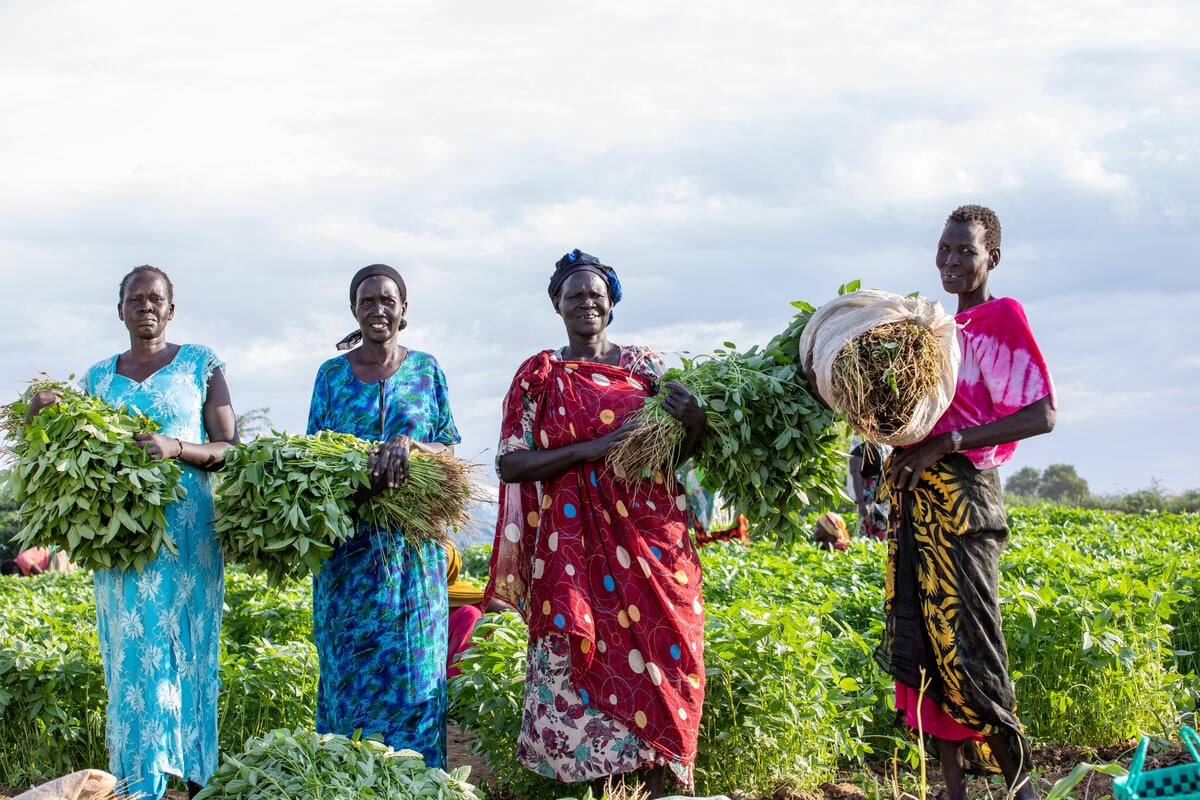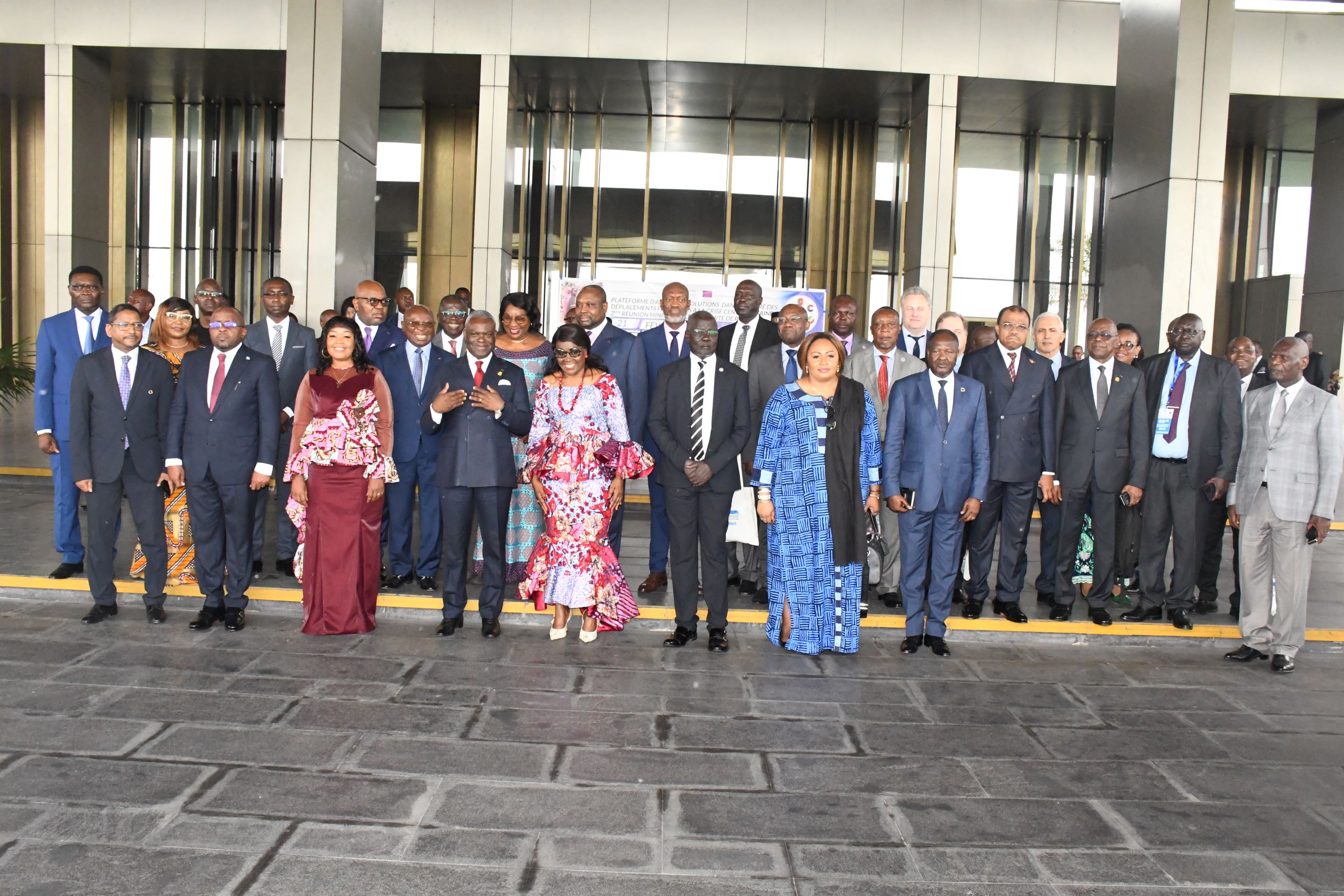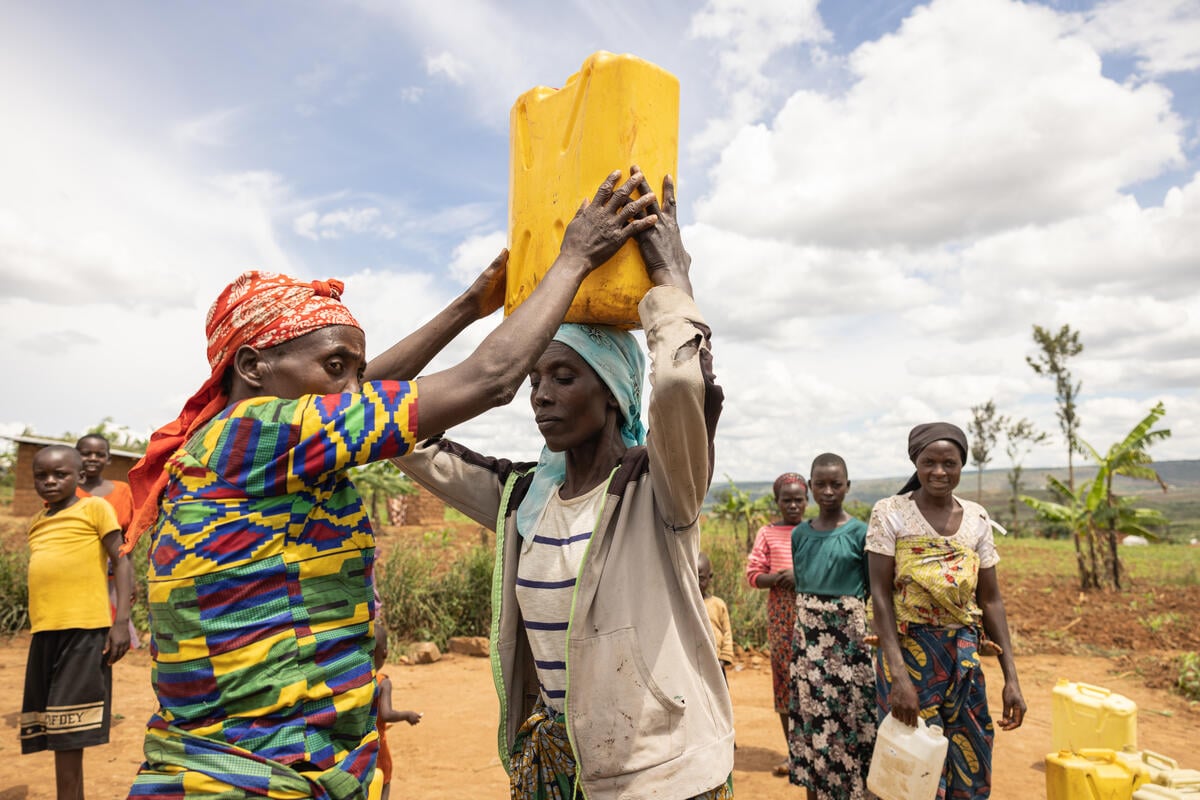Modern technology helping refugees in Angola get aid fast
Modern technology helping refugees in Angola get aid fast

DUNDO, Angola - A long queue snakes its way through Cacanda reception centre as people wait patiently to receive their monthly food rations of maize meal, cooking oil and beans. An average of 4,500 people queue daily to receive food and other items like blankets, mosquito nets, buckets and solar lamps.
The distribution usually takes a long time to end making people wait for hours. But things have recently changed as Katerina, one of the people queuing for food comes to discover. When she started off bright and early for the distribution centre to pick food for her 21-month old son, Jean, she had braced herself for a long queue and a longer wait. But what she found when she got there surprised her.
“I came this morning at 8 a.m. thinking I would have to spend the whole day queuing,” she says. “But two hours later, I had received my food, knew how to cook it and was on my way.”
“I came this morning at 8 a.m. thinking I would have to spend the whole day queuing, but two hours later, I had received my food.”
A young mother from the Democratic Republic of Congo’s Kasai-Oriental province, Katerina is currently staying in Dundo with her son and her four-year-old daughter, Valentine. Here in Angola’s Lunda Norte province, there are two reception centres allocated by the Government to temporarily accommodate over 31,000 refugees who recently fled violence in the DRC’s Kasai region.
Katerina has now stayed here for almost two months and is among other mothers of over 2,200 children aged between six and 23 months who are receiving monthly rations of SuperCerealPlus; a nutritious supplementary food that prevents malnutrition in children.
“I learned about this distribution from other refugees and I also heard about it through the community radio,” she says happily.
While previously they would have waited for long hours, they are now receiving the rations in record time; an achievement that has been made possible thanks to modern technology.
UNHCR, the UN Refugee Agency and World Food Programme (WFP) developed a Rapid Distribution Tool that uses simple bar code technology to ensure a quicker and safer distribution process, saving refugees long hours of waiting.
Refugees like Katerina have ration cards that are marked with a bar code which they present to UNHCR when picking food and other items. With a simple scan, UNHCR is able to verify the identity of the cardholder and the family against information already captured in its database. This ensures that each family is provided with its allocated rations during each distribution.
“Prior to developing this system, we had to find each family from a printed list of all refugee families,” explains Bertrand Blanc, the Head of UNHCR’s Field Office in Dundo. “This led to a higher number of errors and exposed the system to the risk of abuse.”
The scan verifies essential refugee information ensuring a more effective, efficient and secure distribution process. If a refugee’s card is determined as invalid, he or she is referred to an arbitration desk where any disputes can be looked into and resolved.
“Prior to developing this system, we had to find each family from a printed list of all refugee families.”
A tailor-made version of the tool was recently developed for other partner agencies to use. In Angola, WFP is using it for the supplementary feeding programme to combat malnutrition among Congolese refugee children.
“The tool helps us to identify acute cases of malnutrition,” explains Diana Borges, WFP’s Emergency Nutrition Officer. “We enter the malnutrition level of each child into the database when the family collects the supplementary food. This way we can monitor the progress made in reducing malnutrition.”
Such steps are vital to ensure that children like Jean who are prone to malnutrition are monitored. While such advances are ordinary in most cities, in a remote and harsh environment like Dundo, they are remarkable.
“The simple technology that we are using makes the monthly distribution of rations easier for the refugees, for us and for our partners.”
“The simple technology that we are using makes the monthly distribution of rations easier for the refugees, for us and for our partners,” says UNHCR’s Bertand. “It saves time and manpower and allows us to reduce fraud resulting from lost or stolen ration cards.”
This technology represents an innovative approach to provide effective assistance and protection of refugees.
Edited by Catherine Wachiaya in Nairobi, Kenya.











